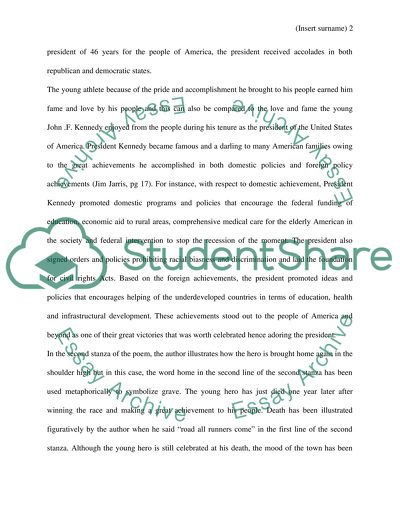Cite this document
(“To an Athlete Dying Young by A. F. Housman (Poetry) Research Paper”, n.d.)
Retrieved from https://studentshare.org/english/1640622-to-an-athlete-dying-young-by-a-f-housman-poetry
Retrieved from https://studentshare.org/english/1640622-to-an-athlete-dying-young-by-a-f-housman-poetry
(To an Athlete Dying Young by A. F. Housman (Poetry) Research Paper)
https://studentshare.org/english/1640622-to-an-athlete-dying-young-by-a-f-housman-poetry.
https://studentshare.org/english/1640622-to-an-athlete-dying-young-by-a-f-housman-poetry.
“To an Athlete Dying Young by A. F. Housman (Poetry) Research Paper”, n.d. https://studentshare.org/english/1640622-to-an-athlete-dying-young-by-a-f-housman-poetry.


